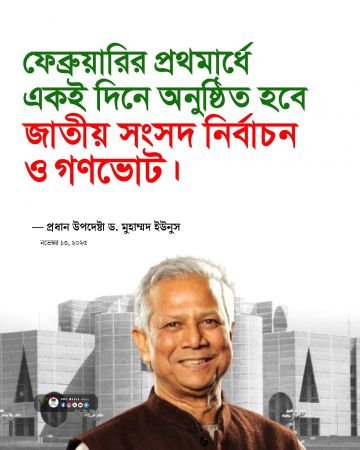How should we live our life? Aristotle answers this with his virtue ethics, but is that enough? His ‘Golden Mean’ (midpoint of two extremes) does not answer all our problems, as we need to be extreme sometimes, i.e., saving a child from the kidnapper or saving one person from getting killed. Though he tried to answer these kinds of situation with another phenomenon ‘Phronimos’, which, to me, is not a very clear idea. I mean what is practical wisdom? How do we know how we have to behave to know ensure that that it would be the ‘sensitive to circumstances’? We don’t know is all I am saying. Therefore, a ‘Eudaimon’ life is not a clear idea to me, to anyone else here for that matter. Then we need to compare between ‘Utilitarianism’ and ‘Duty Ethics’, as we know that virtue ethics cannot be the answer to most of our daily problems.
To start, I would like to talk about ‘Utilitarianism’, what is it and who proposed it very shortly. Jeremy Bentham, an English Philosopher, proposed it and he comes up with an idea to measure happiness, he called it ‘hedonic calculi’. According to him, all kinds of happiness are the same and we don’t get to differentiate among them. Well, that’s wrong, isn’t it? But his way has a clear message: “maximizing the happiness for the maximum number of people”. Therefore, it only focuses on the maximum happiness. However, we know it not only from Raul’s theory of justice but from our common sense that is undermines minority rights. Should a situation occurs when one person says the right thing and many a people say the wrong thing, Bentham would go with the latter group as it maximizing the maximum people, admitting that it is the right thing to do and thus it’s virtuous. According to him, what satisfies maximum number of people is virtuous, and we know that it’s wrong. His student John Stuart Mill, another English fellow, saves his hypothesis from identified as ‘Pig’s philosophy’. Mill classifies happiness into two classes – higher class happiness and lower class happiness. Pleasure that only has to do with body is lower kind of happiness, i.e. sexual intercourse, eating food et cetera. Knowledge on the other hand considers as a higher kind of pleasure. These are both classic utilitarianism called as act and rule utilitarianism respectively. Personally, I don’t find utilitarianism as a good way of living a life though I love democracy. There is a reason there and I will come to that shortly.
Now the time comes to talk about, ‘Duty Ethics’ or famously known as Kantian Ethics. Immanuel Kant proposes this way of life. According to him, only good intentions count. Why we do the work justifies everything, even if the result is not good. Now it is not the time to explain the ‘good will’, ‘maxim’, ‘categorical imperative’. However, we all know the difference between duty and inclination. Let me give an example and clear this out a bit. Let’ assume in a hypothetical situation, one has to choose between helping a poor and going to a posh restaurant with a pretty lady. Here, we know the good will can be applied. Both of the work can be justified as the instances of ‘good will’. However, my underlying cause can be ‘Help the person who needs the most’; which is a maxim. It doesn’t have a condition attached to it, hence, it is a categorical imperative as well. Some may ask what conditions? I’m giving one example: “Help the person who needs the most if doesn’t hamper your recreation or if you want to go to heaven.” These underlying cause with conditions are called “hypothetical imperative”, it can’t be a maxim. To be one’s ‘maxim’, one statement has to be a ‘categorical imperative’. It is not that simple actually. I mean, every categorical imperative cannot be maxim; they are applicable to be one. For that, it has to pass a litmus test. In Kant’s language: it has to be ‘universal law’, ‘treat people as ends’ and ‘kingdom of ends’.
Kant did not like the very idea of emotions when it comes to choose a duty. In his opinion they are ‘irrelevant”. First things first, ‘universal law’ means if a maxim is a genuinely moral one, then it ought to apply to everyone in relevantly similar circumstances: it should be universalisable. For explaining this, Kant used the example of making promises you don’t want to keep. We can’t possibly want that everyone breaks their promises. That way, we wouldn’t be able to trust anyone to keep their promises. So the maxim can’t be a moral one, you could not will it as a universal law. As for the formulation of ‘treat people as ends’, Kant says “Act so as to treat others and yourself always as ends, never simply means to ends.’ The third formulation of categorical imperative is ‘kingdom of ends’, which is an imaginary state whose laws protect individual autonomy. Treat people as ends protects a person’s dignity as a citizen, kingdom of ends preserves the individual autonomy without harming anyone else. The former preaches the very idea of ‘individuality’ and the latter formulates the conduct of a society where everyone is equal. I’m sure now everyone can guess we have some countries where the founders tried to materialize this in their countries. Netherlands, Germany, US can be named here.
Kant took almost sixteen years to come up with this theory, which bashed all pre-thought ideas and prejudice. He doesn’t support anything before knowing the matter. When it comes to that, we need to judge the situation by our maxim and three formulations of categorical imperative. If it is our duty, then it is a must for us to do it. We can’t think of anything else, we can’t think of consequences, or environment, or our status. Kant makes it about duty and if it is our duty, we have to do it. That would be moral, anything else would be immoral. For example, we can’t help anyone because it is said in the Holy Scripture; we can do it because it is right thing to do. Similarly, we can’t do anything just it is said there too. Duty is everything. If we do anything for the heaven as prize, that would be immoral. Well, I don’t disagree that it is too sophisticated to understand however, it is, by far, the best one to me.
There are so many theories to overcome philosophical dilemma, Kantian law doesn’t need the existing law system (in my interpretation). Just society is something that provides freedom to everyone without violating anyone else’s right. Later, John Rawls came up with ‘A Theory of Justice’ in 1971. That was a good one to establish a just society. Though, I would still go with Kantian law. Dr. Amartya Sen then elaborated the whole thing in his book, ‘The Idea of Justice’, where focused on power and equity. I think that can be a good source of deciding our life rail. However, coming up with own version of justice (maxim) ensures freedom of people, which leads to the very idea of democracy. Kant’s life was funny too! He answered one lady’s proposal after 26 years, when actually the fine lady was a mother of two children! This guy dedicated his life to come up with this idea. Well, he came with a very good one!
Reference:
Kant, I., 1785, Ground work of the Metaphysics of Morals, H.J. Paton,trans., New York: Harper and Row,1964.
Rawls, J., A Theory of Justice, Cambridge: Belknap Press of Harvard University Press, 1971.
Sen, A., The Idea of Justice, Harvard University Press & London: Allen Lane, 2009.
Crisp, R., Nicomachean Ehtics, Cambridge: Cambridge University Press, 2000.
Mill, J. S., (1861), chapter -02
Sidgwick, H.(1974), The Methods of Ethics, Oxford, p-483.
সর্বশেষ এডিট : ২৬ শে আগস্ট, ২০১৫ বিকাল ৫:০৫


 অনুগ্রহ করে অপেক্ষা করুন। ছবি আটো ইন্সার্ট হবে।
অনুগ্রহ করে অপেক্ষা করুন। ছবি আটো ইন্সার্ট হবে।







